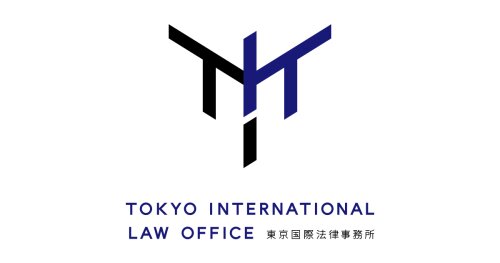Best Energy, Environment & ESG Lawyers in Japan
Share your needs with us, get contacted by law firms.
Free. Takes 2 min.
Or refine your search by selecting a city:
List of the best lawyers in Japan
About Energy, Environment & ESG Law in Japan
Energy, Environment, and ESG (Environmental, Social, and Governance) laws in Japan are designed to address the country's commitment to sustainable development, climate change mitigation, and responsible business practices. With Japan being a highly industrialized nation dependent on both imported and domestic energy, there is a strong focus on regulating energy sources, promoting renewable energies, managing environmental protection, and ensuring that companies adhere to ESG principles. These legal frameworks are actively evolving to align with international standards and Japan's own climate and sustainability goals.
Why You May Need a Lawyer
People and businesses may require legal assistance in the field of Energy, Environment, and ESG for many reasons. Common situations include:
- Starting or expanding a business in energy production, including renewables like solar or wind
- Navigating regulations for carbon emissions, pollution control, or waste management
- Ensuring compliance with Japanese ESG disclosure requirements for listed companies
- Handling disputes involving environmental permits or violations
- Participating in government-subsidized energy projects
- Dealing with the legal requirements of mergers or acquisitions in the energy sector
- Assessing environmental risks and liabilities in land or facility development
- Implementing corporate sustainability programs and reporting ESG performance
A lawyer can provide crucial guidance for both domestic and foreign parties to comply with complex and strict regulations, avoid legal penalties, and support responsible growth.
Local Laws Overview
Japan has a comprehensive set of laws and frameworks governing Energy, Environment, and ESG:
- Energy Laws: Japan regulates energy production and consumption via the Electricity Business Act, Renewable Energy Act, and related legislation. These laws manage licensing, grid access, feed-in tariffs, and the transition to non-fossil fuel energy sources.
- Environmental Laws: The Basic Environment Law and the Act on the Assessment of Environmental Impact are foundational statutes. Additional regulations control chemical substances, industrial waste, air and water pollution, and resource recycling.
- ESG and Sustainability Disclosure: Companies listed on Japanese stock exchanges must report on their ESG activities according to Financial Services Agency and Tokyo Stock Exchange requirements, based on global standards such as TCFD (Task Force on Climate-related Financial Disclosures).
- Climate Change Policy: Japan has committed to reducing greenhouse gas emissions to net-zero by 2050, with policies incentivizing investments in renewables and enforcing stricter reporting and reduction frameworks.
Compliance is enforced through regulatory bodies, and violations can lead to severe penalties, including business suspension or criminal charges.
Frequently Asked Questions
What qualifies as a renewable energy project in Japan?
In Japan, renewable energy projects typically include solar, wind, geothermal, hydropower, and biomass. Projects must meet specific criteria under the Renewable Energy Act to access government incentives or participate in feed-in tariff programs.
Are environmental impact assessments required for new developments?
Yes, under the Act on the Assessment of Environmental Impact, developments of a certain scale or in specific sensitive areas must undergo environmental assessments before construction begins.
What are the ESG reporting requirements for Japanese companies?
Publicly listed companies are required to disclose information on their environmental, social, and governance practices in their annual reports, following guidelines set by the Financial Services Agency and based on international standards like TCFD.
Can foreign companies participate in Japan's energy market?
Yes, foreign companies can enter Japan's energy market, but they must comply with local licensing and regulatory requirements. There may be restrictions in specific sectors or areas of strategic importance.
What penalties exist for violating environmental regulations?
Penalties can include administrative orders, fines, suspension of business activities, and in severe cases, criminal prosecution against responsible individuals or company executives.
How does Japan support renewable energy investment?
Japan provides subsidies, tax incentives, and feed-in tariff schemes to encourage the development and adoption of renewable energy projects by both domestic and foreign investors.
Do small businesses have to comply with ESG regulations?
ESG disclosure requirements mainly apply to publicly listed companies, though increasing pressure from investors may prompt private companies to adopt ESG best practices voluntarily.
Who monitors environmental law compliance in Japan?
Regulatory oversight is primarily handled by the Ministry of the Environment, the Ministry of Economy, Trade and Industry, and local government authorities, all of whom have the power to inspect, audit, and enforce compliance.
What is Japan's goal for carbon neutrality?
Japan aims to achieve net-zero greenhouse gas emissions by the year 2050 through a combination of renewable energy development, technological innovation, stricter regulations, and international cooperation.
How can a lawyer assist with environmental disputes?
A lawyer can represent individuals or businesses in disputes concerning environmental damage, regulatory compliance, permits, or sanctions, and guide through negotiations, administrative proceedings, or litigation if necessary.
Additional Resources
For further information and support, consider the following organizations and resources:
- Ministry of the Environment Japan - Responsible for environmental policy, compliance, and guidance
- Ministry of Economy, Trade and Industry - Governs energy and industrial regulation
- Japan External Trade Organization - Provides information for foreign investors, including energy and environmental business requirements
- Japan Renewable Energy Foundation - Offers resources and updates on renewable energy in Japan
- Tokyo Stock Exchange - ESG reporting guidelines for listed companies
Next Steps
If you need legal assistance in the area of Energy, Environment, and ESG in Japan, you should:
- Identify the specific issue or project you need help with, such as permit applications, compliance review, or responding to enforcement actions
- Gather all relevant documents, correspondence, and data concerning your matter
- Consult with a specialist legal professional or law firm with experience in Japanese Energy, Environment, and ESG law
- Prepare a list of questions and objectives for your initial consultation
- Follow legal advice and maintain compliance to avoid risks, penalties, and legal disputes
Having the right legal support can help you navigate Japan's evolving regulatory landscape and achieve your energy, environmental, or sustainability goals with confidence.
Lawzana helps you find the best lawyers and law firms in Japan through a curated and pre-screened list of qualified legal professionals. Our platform offers rankings and detailed profiles of attorneys and law firms, allowing you to compare based on practice areas, including Energy, Environment & ESG, experience, and client feedback.
Each profile includes a description of the firm's areas of practice, client reviews, team members and partners, year of establishment, spoken languages, office locations, contact information, social media presence, and any published articles or resources. Most firms on our platform speak English and are experienced in both local and international legal matters.
Get a quote from top-rated law firms in Japan — quickly, securely, and without unnecessary hassle.
Disclaimer:
The information provided on this page is for general informational purposes only and does not constitute legal advice. While we strive to ensure the accuracy and relevance of the content, legal information may change over time, and interpretations of the law can vary. You should always consult with a qualified legal professional for advice specific to your situation.
We disclaim all liability for actions taken or not taken based on the content of this page. If you believe any information is incorrect or outdated, please contact us, and we will review and update it where appropriate.
Browse energy, environment & esg law firms by service in Japan
Japan Attorneys in related practice areas.
Browse energy, environment & esg law firms by city in Japan
Refine your search by selecting a city.

















